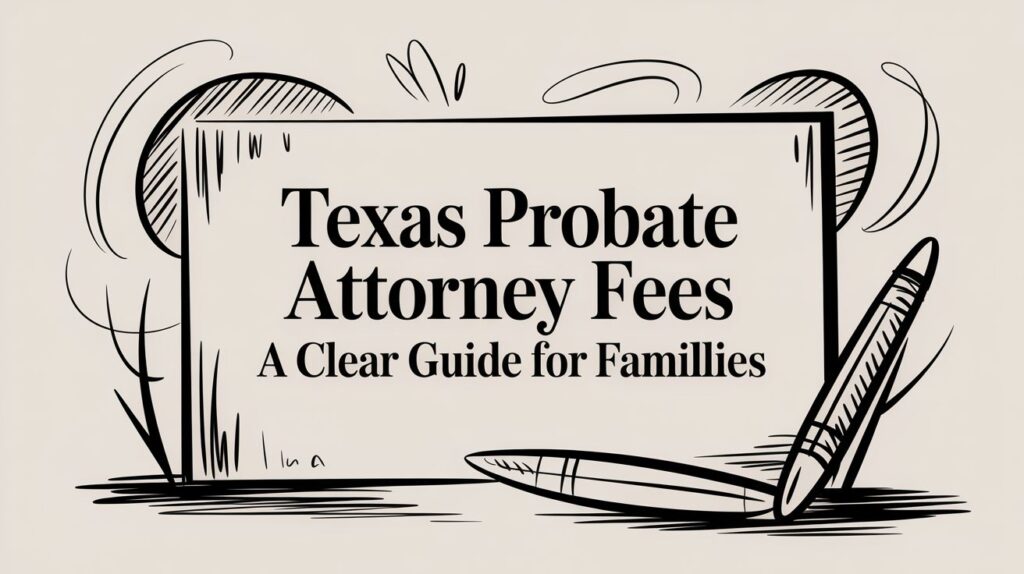If you’re managing a loved one’s estate or planning your own, you’ve likely asked yourself: what is probate taxes in Texas and does every estate owe them? It’s a reasonable question—and a necessary one—because probate can be confusing, especially when taxes are involved. In Texas, where probate law has its own set of rules, understanding how taxes apply can mean the difference between preserving wealth and paying more than necessary.
This article breaks down probate taxes in Texas with a human touch, a sharp eye for legal nuance, and a storytelling approach that makes it all digestible. Whether you’re an executor, heir, or someone doing estate planning, we’ll explain when taxes apply, what kind of taxes they are, and how to reduce—or even avoid—them. Let’s dive into the facts with clarity and confidence.

First Things First: What Is Probate in Texas?
Before we talk taxes, we need to understand what probate means in Texas. Probate is the legal process of settling an estate after someone dies. It includes validating the will (if one exists), identifying heirs, paying off debts, and distributing assets.
In Texas, probate can take several forms:
- Independent administration (most common—less court oversight)
- Dependent administration (court involvement in every step)
- Muniment of title (a simplified process used when there’s a valid will and no debts)
Now, how do taxes fit into this?
So, What Is Probate Taxes in Texas?
The phrase “probate taxes in Texas” often confuses people because Texas doesn’t impose a separate state-level estate or inheritance tax. That’s right—Texas does not have its own probate tax. But that doesn’t mean you’re completely off the hook.
Here’s what may still apply:
- Federal estate taxes (for very large estates)
- Income taxes on the estate
- Capital gains taxes
- Property taxes
- Final personal income tax return for the deceased
So, when people ask, what is probate taxes in Texas, they’re usually trying to make sense of this cluster of potential tax obligations that arise during the probate process—even if the state itself doesn’t impose a “probate tax.”
Real-Life Story: Linda’s Surprise Tax Bill
Let’s bring this home with a story. Linda’s mother passed away in The Woodlands, leaving behind a will, a house, and a few investment accounts. Linda, named executor, thought it would be a simple probate. There was no estate tax in Texas, right?
What Linda didn’t realize was that the estate had appreciated assets—namely, the home had doubled in value since it was purchased. When she sold it during probate, she triggered capital gains tax, which required the estate to file a separate return. On top of that, she had to file her mother’s final federal income tax return, as well as a short-year return for the estate itself.
The takeaway? Even in Texas, tax obligations during probate can sneak up on you. Understanding what is probate taxes in Texas means knowing how multiple tax layers can still apply.
Does Every Estate in Texas Owe Probate Taxes?
Here’s the short answer: No, not every estate owes taxes during probate. But every estate should be evaluated to determine which taxes—if any—apply.
Federal Estate Tax Threshold
As of 2025, the federal estate tax only applies to estates valued over $12.92 million per individual (subject to annual inflation adjustments). Most Texas estates fall far below this threshold.
If you’re the executor of a modest estate—say, a home, a few bank accounts, and a car—you’re probably not subject to federal estate tax.
Capital Gains and Income Taxes
These, however, are more common. If the estate sellsreal estate, stocks, or other assets that have appreciated in value, capital gains tax may be owed. Additionally, any income generated by the estate (like rental property) must be reported and may be taxable.
So while there may not be a “probate tax” per se, understanding what is probate taxes in Texas involves identifying all these possibilities.

Key Tax Responsibilities of an Executor
Executors have a heavy burden when it comes to taxes in probate. They must:
- File the decedent’s final income tax return (IRS Form 1040)
- File estate income tax returns (IRS Form 1041) if the estate earns income during probate
- Pay outstanding property taxes
- Report and pay capital gains taxes if assets are sold during probate
- Keep meticulous records for all transactions
If these obligations are ignored or handled incorrectly, the executor can be held personally liable. That’s why grasping what is probate taxes in Texas isn’t just smart—it’s essential.
Are Inherited Assets Taxable in Texas?
One of the most common myths we hear is, “If I inherit something in Texas, do I pay a tax on it?”
Good news: Texas does not have an inheritance tax. That means beneficiaries don’t pay a state tax just for inheriting property or money.
However, that doesn’t mean there are zero tax consequences. For example:
- If you inherit a home and sell it, you may owe capital gains tax.
- If you inherit an IRA, distributions may be taxable as income.
- If the estate earns money before distribution, that income may be taxable.
So, what is probate taxes in Texas really comes down to what happens within the estate—not the mere act of receiving an inheritance.
Homestead Exemptions and Property Taxes
Let’s talk about property taxes—especially on the family home. If the decedent had a homestead exemption, it doesn’t automatically carry over to heirs. This can cause the property taxes to spike significantly after the transfer.
To minimize this, heirs or executors should:
- Apply for a new homestead exemption (if eligible)
- Notify the appraisal district of the change in ownership
- Explore deferral options for seniors or disabled individuals
Understanding this part of what is probate taxes in Texas can save heirs thousands of dollars—and avoid potential tax liens down the road.
When to File IRS Form 706 (Federal Estate Tax Return)
This form applies only to estates that exceed the federal estate tax threshold. If the estate is over the $12.92 million mark, the executor must file Form 706 within nine months of death.
This is a rare occurrence, but if you’re dealing with a high-net-worth estate, it’s critical to consult a tax attorney or CPA familiar with probate. Missing this filing deadline can result in penalties or interest on unpaid taxes.
Even if not required, some executors file it to elect portability—preserving any unused exemption for a surviving spouse.
How Texas Probate Courts Handle Tax Matters
Texasprobate courts don’t directly collect taxes, but they do require proof that tax responsibilities have been met before the estate is closed.
In some counties, you may need to:
- File a sworn inventory and appraisement
- Submit receipts showing debts and taxes were paid
- Get court approval for asset sales (in dependent administrations)

If the estate skips tax filings or ignores IRS notices, the court may delay closing the estate until everything is resolved.
So in answering what is probate taxes in Texas, the court plays a supervisory role, ensuring tax compliance is part of the probate checklist.
Planning Ahead: How to Minimize Probate Taxes in Texas
You might be reading this not as an executor, but as someone planning your estate. That’s a wise move—because the best time to manage probate taxes is before death, not after. Being proactive today can prevent burdensome complications for your loved ones tomorrow.
Here’s how:
Use Transfer-on-Death (TOD) Designations
Many assets, like bank accounts and brokerage accounts, can bypass probate through TOD designations. This keeps them out of the estate, which can reduce potential tax complications. It also ensures a faster, smoother transfer of wealth directly to your chosen beneficiaries.
Establish a Revocable Living Trust
Trusts don’t eliminate taxes, but they help avoid probate altogether, reducing delays and administrative costs. They also provide more privacy and control over how and when assets are distributed.
Step-Up in Basis Awareness
When someone dies, most assets receive a “step-up” in basis to their market value at the date of death. This can eliminate capital gains tax on prior appreciation—but only if the estate handles it correctly. Executors should work closely with tax professionals to document values accurately and avoid disputes with the IRS.
A skilled estate planning attorney will help ensure the estate gets the full tax benefit.

Their guidance can clarify gray areas, prevent filing mistakes, and help craft a personalized plan to minimize exposure to taxes during probate.
Final Thoughts: What Is Probate Taxes in Texas and Who Needs to Worry?
To recap, when people ask what is probate taxes in Texas and does every estate owe them, they’re really asking how tax obligations fit into the probate process. It’s not a one-size-fits-all answer and depends heavily on the estate’s composition and how well the assets were managed before death.
The truth is, Texas doesn’t impose a probate or inheritance tax. But federal taxes, capital gains, income from the estate, and property taxes may still apply. Executors must be vigilant, heirs need to understand the risks, and planners should act early to protect their estate from unnecessary taxes. Even a simple estate can face tax hurdles without careful planning.
The fewer surprises during probate, the smoother the process—and the better the outcome for everyone involved. Knowledge, preparation, and professional support make all the difference in navigating probate taxes in Texas with confidence.








